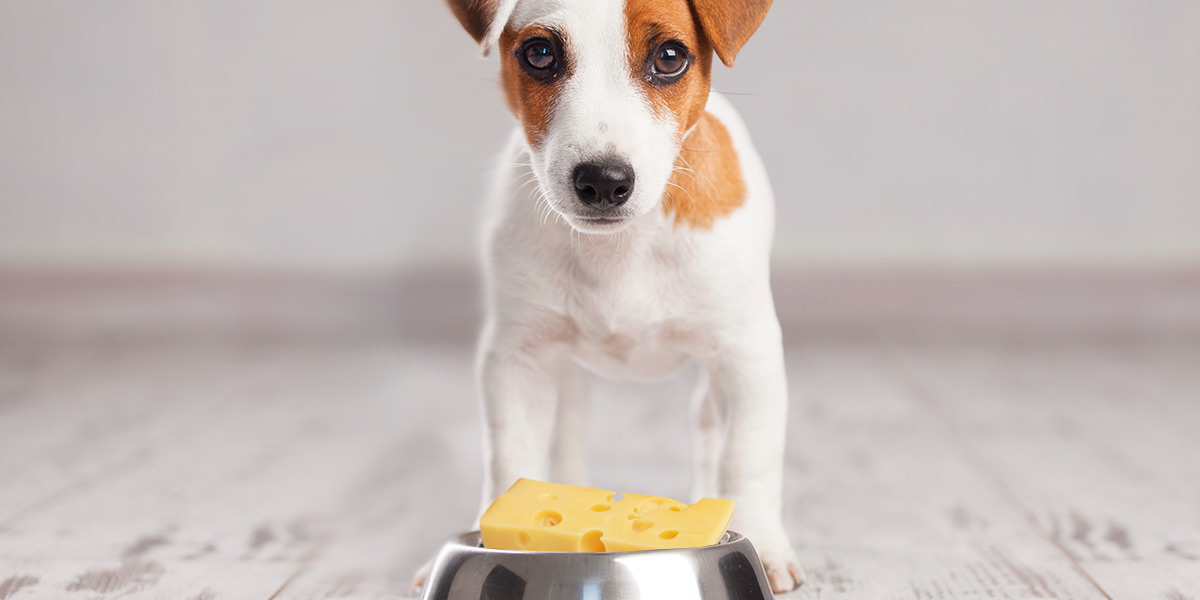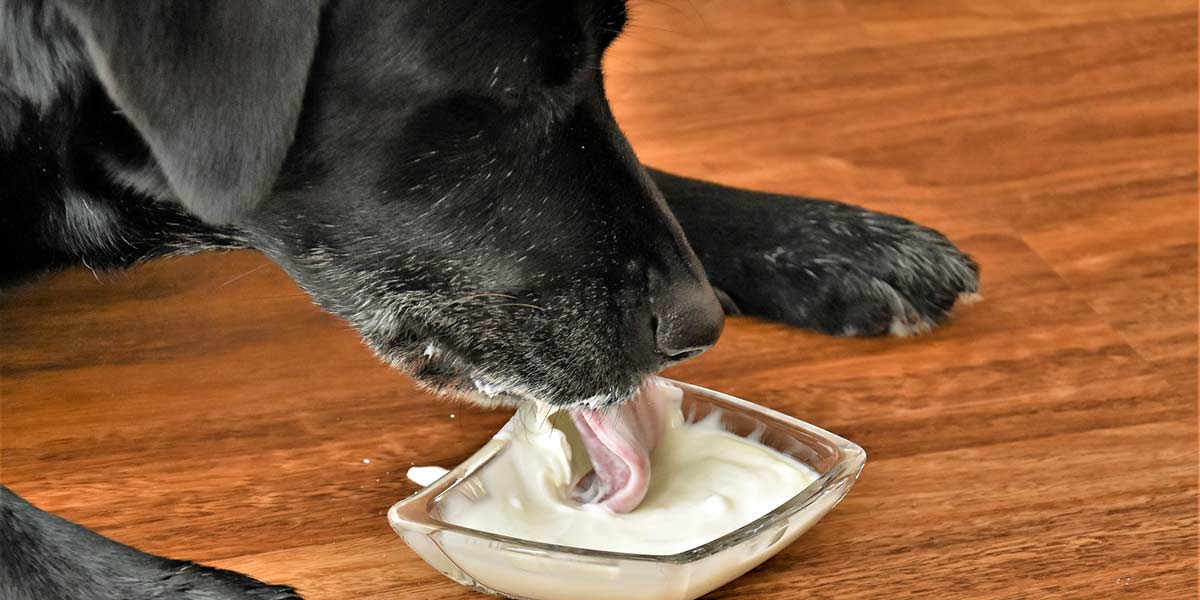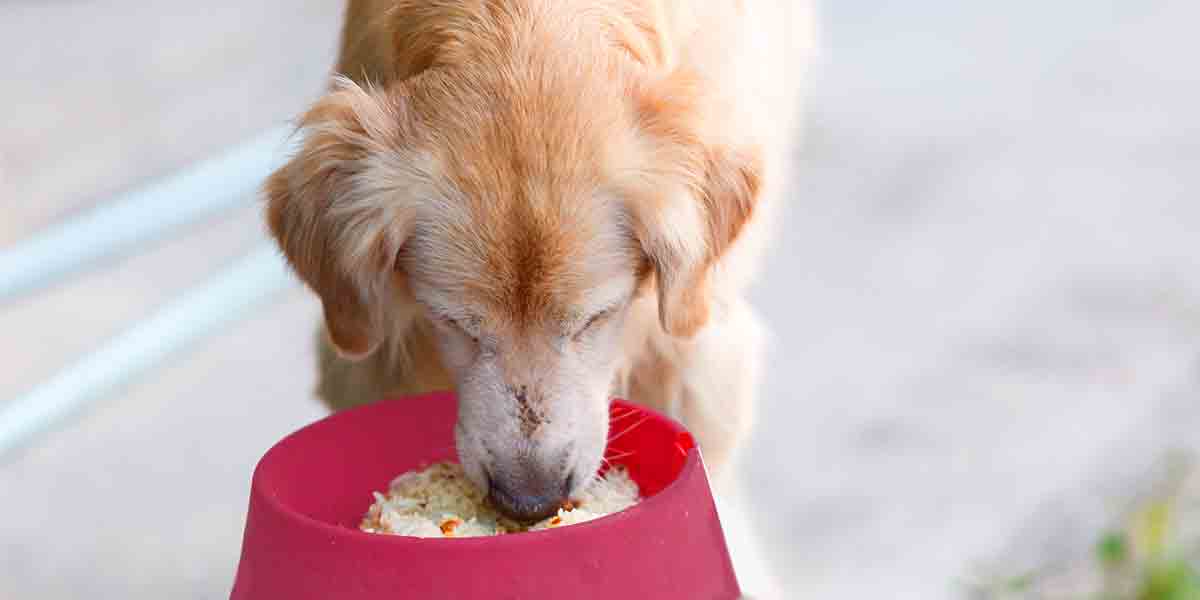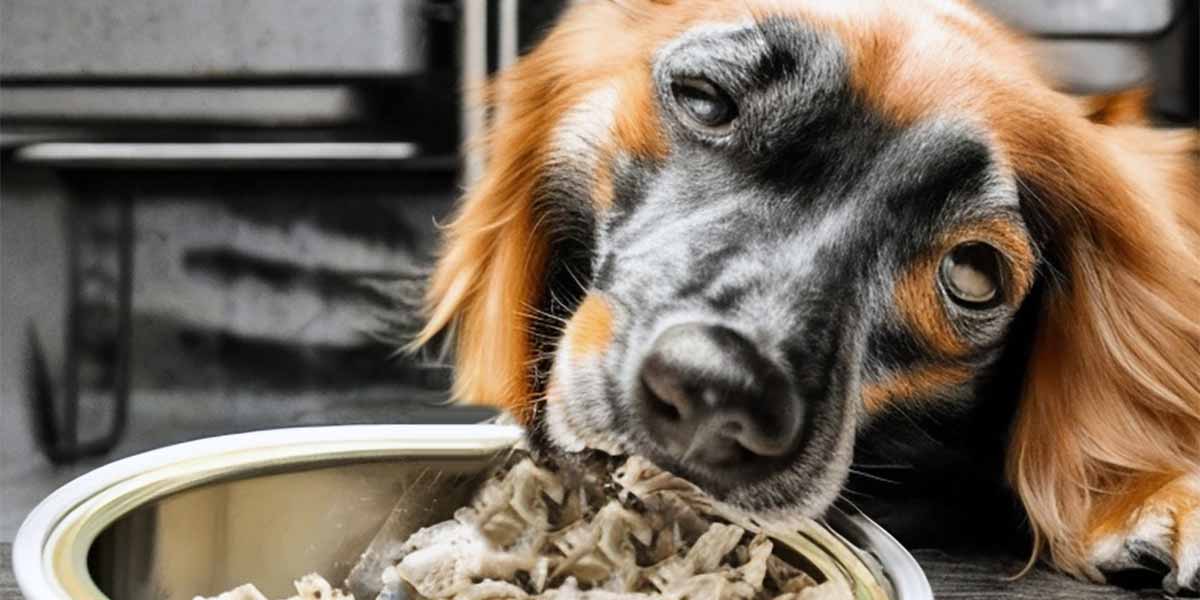Can I feed my dog cheese? The answer is it depends. Cheese can be a healthy part of a dog’s diet under conditions, but feeding it to a dog that by nature is not trained to eat can lead to serious health problems.
As an affiliate, we earn from qualifying purchases. We get commissions for purchases made through links in this website’s posts from Amazon and other third parties.
In this blog post, we will explore the health risks of feeding cheese to dogs and give some tips on making sure your relationship with your dog is healthy.
Risks feeding your dog cheese, and how it can lead to serious health issues
Dogs love cheese, although most pet owners do not.
If you are the owner or lover of a four-legged friend, you may have considered throwing some cheese in the dog’s bowl only on special occasions. Maybe even as a training tool.
Lactose can cause problems for your dog
But one ingredient in particular in cheese could cause your dog to become sick or even die, the Lactose.
Lactase, an enzyme that breaks down lactose in milk, is only produced in high quantities in a baby’s digestive system. Puppies are born with the enzyme, but for humans, lactase production abruptly decreases after weaning.
Therefore, most adult dogs cannot digest lactose effectively, which is what makes eating cheese or drinking milk so uncomfortable.
Lactose can result in digestive issues, such as diarrhea, vomiting, and gas, as well as other gastrointestinal problems. Dogs don’t have the required enzymes to break down lactose, meaning they can’t properly absorb and utilize the nutrients in the cheese.
Therefore, the cheese will pass through the digestive tract with little benefit to your pet, which can cause an upset stomach. In some cases, lactose intolerance can result in more serious health issues. If your dog does not seem to be able to tolerate cheese, it is best to avoid it and opt for a more suitable treat.
Cheese is high in fat and calories, which can lead to weight gain, obesity, and other health issues in dogs
If your dog is overweight, you may decide to give your dog some cheese, thinking that the cheese will help him lose weight. However, cheese is high in fat and calories, which can lead to weight gain, obesity, and other health issues in dogs.
For dogs, high-calorie foods like cheese can cause weight gain over time. Though cheese is high in protein and calcium, it is still high in fat and calories, which can result in weight gain.
If your dog is overweight, it’s best to avoid feeding your dog cheese. However, if your dog needs to lose weight, you should feed him a low-fat, high-protein diet. As your dog loses weight, you can gradually increase the amount of cheese that you’re feeding him.
Feeding your dog cheese can cause problems such as pancreatitis, which is an inflammation of the pancreas
Many people like to feed their dogs cheese, but this can cause damage to your dog’s health.
Feeding your dog cheese can cause problems such as pancreatitis, which is an inflammation of the pancreas. The inflammation can occur after a single ingestion of cheese.
Feeding your dog cheese can also lead to obesity, to an increase in your dog’s cholesterol and triglyceride levels.
Feeding your dog cheese can also cause diarrhea, vomiting, and lethargy.
Cheese can also cause or worsen allergies in dogs, leading to skin irritation, itching, and other issues
Feeding cheese to dogs can be a tasty treat, however, it can also cause or worsen allergies in some dogs, leading to skin irritation, itching, and other issues. Cheese is high in fat, and is sometimes difficult for dogs to properly digest. Dogs with lactose intolerance may often suffer from diarrhea, flatulence, and vomiting after eating cheese.
Even if a dog doesn’t have a lactose intolerance, cheese can still cause an allergic reaction in some cases. Cheese allergies can cause skin rashes and other issues such as excessive itching and licking, which can cause further skin irritation. In some cases, the reaction may be severe enough to require veterinary care.
If you are considering feeding cheese to your dog, it is important to consider the potential risks.
Dogs with known food allergies should not be fed cheese due to the potential for a reaction. It is also important to be mindful of the amount being fed. Cheese can be a high-calorie treat, and feeding too much can lead to weight gain and other health issues. Additionally, cheese should not be used as a substitute for a balanced diet. Ensure your dog gets all the nutrients it needs from its regular meals.
It can be a fun and tasty treat for those who can safely enjoy cheese. However, it is important to be aware of the potential risks and to always consult with a veterinarian if you have any concerns.
Cheese can cause an upset stomach in your doggy
Another risk associated with feeding cheese to dogs is that it can cause an upset stomach. If your dogs are not used to eating cheese, they may experience stomach upset if the cheese is not cooked before eating.
Your dog can become over-weighted
Finally, cheese is high in fat and salt and can cause your dog to become overweight. For this reason, it’s a good idea to feed cheese to your dog only occasionally or better avoid it from its diet.
By avoiding feeding your dog cheese, you can help ensure their long-term health and well-being
When it comes to your dog’s diet, there are quite a few things you should avoid feeding him. Cheese is perhaps one of the worst foods to feed your dog. It is high in calories and fat, both of which can put undue stress on your dog’s digestive system.
Cheese also contains sodium, which can be hard on your dog’s heart and can lead to dehydration. Your dog needs plenty of fluids to stay healthy, and too much sodium can prevent him from getting those fluids.
Cheese and its sodium content can also cause your dog to gain weight. This can lead to other problems, such as diabetes and obesity. It can also lead to other health problems, such as heart disease.
Watch the next video: Can dogs eat cheese?
If your dog eats cheese, it will likely experience unpleasant side effects, such as flatulence, diarrhea, and digestive problems. These problems may be temporary, but they can be irritating to your dog. They can also put stress on his digestive system, resulting in long-term damage.
An overview of the types of cheese that are toxic to dogs and why they should be avoided
Cheese is a popular snack for both humans and dogs, yet not all cheeses are safe for dogs to consume.
Certain types of cheese can be toxic and should never be fed to dogs
Mould-ripened cheeses, such as Brie and Camembert, are particularly dangerous as they contain a type of mould called Penicillium, which can lead to vomiting and diarrhea in dogs.
Unripened cheeses, such as feta, are also considered toxic as they contain a toxin known as tyramine, which can cause seizures and even death in dogs.
Additionally, cheese products, such as queso fresco, are also dangerous to dogs as they contain a preservative called rindlin, which can cause liver damage or even death in some cases.
In general, it is best to avoid feeding your dog cheese unless it is specifically created for dogs.
Cheeses that are specially made for dogs usually contain fewer additives, and fewer preservatives, and are generally safer for dogs to consume. However, even when feeding your dog cheese made for canine consumption, monitoring your dog’s reaction to the cheese is important.
If your dog exhibits any signs of distress after eating cheese, it is important to contact a veterinarian immediately. Additionally, limit your dog’s intake of cheese, as too much cheese can lead to digestive problems.
In conclusion, while cheese can be a tasty treat for dogs, it is important to make sure that you are only feeding your dog cheese that is safe and specifically made for canine consumption.
Monitor your dog’s reaction to the cheese, and if you notice any signs of distress, contact a veterinarian right away. Feeding your dog cheese can be a fun and tasty way to treat them, as long as it is done safely.
Common toxic cheeses to dogs and how to identify them
American cheese: American cheese, also called “processed cheese” or “grocery cheese,” contains bacteria that can make you sick. Don’t feed it to your pets.
Cotija cheese: Cotija cheese, a type of goat cheese made in Mexico, isn’t safe for pets. It contains penicillin and staphylococcal bacteria that can cause severe health problems in dogs.
Feta cheese: Feta, a cheese made in Greece, contains tyrobetaine and tyramine, which can cause problems for dogs.
Gorgonzola cheese: Gorgonzola, a type of blue cheese made in Italy, contains tyrobetaine, which is toxic to dogs.
Jarlsberg cheese: Jarlsberg, a Norwegian cheese, contains tyramine, which is toxic to dogs.
Mascarpone: Mascarpone, a type of Italian cream cheese, contains cornstarch, which is used to thicken it. This can cause serious problems in dogs.
Muenster cheese: Muenster, a cheese made in the United States, contains penicillin and tyramine, which are toxic to dogs.
Parmesan: Parmesan, a cheese made in Italy, contains tyro betaine, which is toxic to dogs.
Roquefort cheese: Roquefort, a type of blue cheese made in France, contains tyramine, which is toxic to dogs.
Swiss cheese: Swiss, which is made out of cow’s milk, contains tyramine, which is toxic to dogs.
Not all cheeses are toxic. If you have a dog, stick to unpasteurized cheeses and avoid feeding your dogs any cheese that is labeled as “processed cheese” or “grocery cheese”.
How to tell if your dog has eaten toxic cheese and the symptoms to look out for
If you’re feeding your dog a cheese stick, make sure it’s safe to do so. There are a variety of cheeses that are poisonous to dogs, and your dog could get sick if given the wrong type of cheese. It’s a good idea to learn how to tell if your dog has eaten toxic cheese.
Symptoms of toxic cheese can include drooling, lack of appetite, lethargy, vomiting, diarrhea, excessive drinking, weight loss, and low body temperature. If your dog has ingested a large amount of cheese, he will need immediate medical attention.
Symptoms of toxic cheese poisoning in dogs
Toxic cheese poisoning is a fairly common condition seen in dogs that can be fatal if left untreated. It occurs when the dog eats cheese or eats cheese that is spoiled, contaminated, or made using the wrong bacteria.
If eaten, toxic cheese poisoning can cause damage to the gut lining, which can lead to severe problems and complications. This can result in infections or reactions to medications, and the dog may suffer from diarrhea, loss of appetite, and vomiting. In more severe cases, the dog may experience swelling and bleeding in the intestinal tract, and a loss of enough blood to cause symptoms of anemia.
How feeding dogs cheese can lead to toxic cheese poisoning
You can either give your dog cheese in small amounts as a special treat or include it in his daily meal. However, this food item may not be a good choice for your pet as it can lead to toxicity, especially depending on the types of cheese that you give your dog.
Cheese contains cow’s milk, which contains casein, a milk protein that can build up in the body tissues of dogs and can cause health problems. Some cheeses may be safe and healthy for dogs to eat, while others can lead to toxicity.
You should only give your dog small amounts of cheese, as it is high in fat and calories.
On the other hand, giving your dog cream cheese or blue cheese is extremely dangerous, as these cheeses contain excessive amounts of harmful bacteria. Cheese can contain listeria or staphylococcus and this can lead to food poisoning or staphylococcus infections, which can be lethal for your dog.
Feeding your dog cheese may accidentally lead to toxic cheese poisoning.
The importance of consulting a vet if you’re unsure about feeding your dog cheese
Feeding your dog cheese can be a great treat, but you should always consult your vet first. Cheese is a dairy product, and like all dairy products, it is important to pay attention to the type and amount of cheese you feed your dog.
While some dogs may be able to tolerate small amounts of cheese, others may find it difficult to digest. A veterinarian can help you determine which type and amount of cheese are best for your pet. They can also help you determine whether or not your pet may be sensitive to dairy products.
Cheese can provide your pet with important nutrients, such as calcium, protein, and fat. However, like all treats, it is important to ensure your pet is getting a balanced diet.
Cheese should be fed in moderation, as large amounts of cheese can lead to obesity and other health problems. Your veterinarian can help you determine how much cheese to feed your pet, and if any other dietary changes may be necessary.
It is also important to ensure that the cheese you feed your pet is of good quality. Low-quality cheese may contain additives and preservatives that can be harmful to your pet. Your veterinarian can advise you on which brands of cheese are safe for your pet. They can also help you identify any potential allergens your pet may have, and help you to find a cheese that is safe for them to eat.
Tips for keeping your dog safe when it comes to cheese, including how to choose the right type of cheese to feed your dog
Here are some tips for keeping your dog safe when it comes to cheese, including how to choose the right type of cheese to feed your dog.
Do some research: Before you choose any type of cheese for your dog, do some research. Different types of cheese have different ingredients and contain different amounts of fat and calories. Choose a cheese that is appropriate for your dog’s age and size.
Consider age: While many people choose to feed their dogs cheese, it’s important to consider their age. When dogs are puppies, they should be eating solid dog food. With age, they can begin consuming soft cheeses.
Know the limits: You should feed your dog cheese in moderation. In general, every pound of your dog’s body weight should be given no more than 1 oz. of cheese per day.
Avoid high-fat cheeses: You should avoid high-fat cheeses, such as Swiss or Cheddar. These types of cheese are high in both fat and calories, which can cause weight gain in pets.
When feeding your dog cheese, be sure to choose a low-fat option. You can feed your dog low-fat cheese, such as mozzarella, Parmesan, or low-fat cream cheese. These are healthier options than high-fat cheeses, such as Swiss or Cheddar.
You should also keep in mind that your dog’s breed can affect its cheese consumption. Small breeds should be fed a small amount, while larger breeds can be fed larger amounts.
Prevention tips for dog owners to avoid toxic cheese poisoning in dogs
Dog owners in search of a healthy, nutritious treat for their pups should be aware of the potential dangers of feeding their dog cheese. While cheese can make a tasty snack, it can also cause toxic poisoning in dogs if not handled properly. To avoid any risks, here are some prevention tips for dog owners to keep in mind when feeding their pup cheese.
Firstly, feeding your dog cheese should only be done sparingly and in small portions, as cheese is high in fat, sodium, and calories. Too much cheese can lead to obesity and other health problems in dogs, such as pancreatitis and diabetes.

Additionally, it is important to avoid feeding dogs certain types of cheese, such as blue cheese and feta, as they can be toxic to dogs.
Another important factor to consider when feeding your dog cheese is the type of cheese. The safest cheese option for dogs is plain, low-fat cottage cheese, as it is low in fat and calories and contains beneficial nutrients like vitamins A and B-12. It is also important to ensure that the cheese is free of additives, preservatives, and artificial flavors, as these can cause an upset stomach in dogs. Last but not least, ensure the cheese is served at room temperature, as cold cheese can cause digestive problems in dogs.
By following these prevention tips for dog owners, you can minimize the chances of toxic cheese poisoning in dogs and provide your pup with a safe, delicious treat.
How to properly – but rarely – feed dogs cheese and monitor for symptoms of toxic cheese poisoning
Feeding cheese to your dog can be an enjoyable and nutritious experience for both you and your pup. Cheese is a great source of protein and calcium, and it’s also a delicious snack for many dogs.
However, feeding cheese to your dog can also be dangerous if you don’t take the proper precautions.
To ensure that your dog enjoys cheese safely and healthily, you must first select the right type of cheese. Not all cheeses are safe for dogs, and some can even be toxic.
Avoid feeding your dog blue cheese, feta, brie, and any other type of cheese that contains mold or is ripened with bacteria. Additionally, avoid cheese made with ingredients that are toxic to dogs, such as garlic and onions. Be sure to only feed your dog cheese that is made from pasteurized milk and contains no added ingredients.
If you are feeding your dog cheese, make sure that you provide plenty of fresh, clean water. This will help keep your dog hydrated and reduce the amount of cheese that he needs to eat.
Once you’ve chosen the right type of cheese, you should also monitor your pup for any signs of cheese poisoning. Some of the most common symptoms of cheese poisoning in dogs include vomiting, diarrhea, lethargy, and abdominal pain.
If your dog displays any of these symptoms after eating cheese, it is important to contact your veterinarian immediately. Additionally, you should always limit the amount of cheese in your dog’s diet to avoid potential health risks.
How often you can feed your dog cheese?
You want to feed your dog cheese in moderation, and only give your dog cheese once per month.
You should also keep in mind that dogs are not used to the taste of cheese. Your dog will likely throw up if he eats it for the first time, so it’s best to avoid giving your dog cheese. He may eventually feel OK with the taste, but until then, it’s best to avoid giving him cheese.
By taking the proper precautions, you can ensure that your dog enjoys cheese safely and healthily.
Just remember to choose the right type of cheese, and monitor your pup for any signs of cheese poisoning. Doing so will ensure that both you and your pup can enjoy the benefits of cheese without any of the potential risks.
How to safely serve cheese as a treat to a dog
Feeding cheese to dogs isn’t such a great idea. Dogs can have allergies to dairy products that are easily triggered. They can cause stomach pain, itching, and vomiting. Feeding your dog cheese as a treat can be dangerous and can even be fatal. But, dogs do love the taste of cheese, so you may want to feed your pet some from time to time.
Here are some tips for safely feeding your dog cheese:
Cut the Cheese: You shouldn’t feed your dog an entire block of cheese. Rather, you should cut the cheese into small pieces. Do you worry about your dog eating an entire block of cheese? You should cut the block of cheese in half before you give it to your dog. As your dog eats the cheese, you can cut the remaining block into pieces as well.
Which Cheese to Feed: You should only use real cheddar cheese when you feed your dog cheese. Other cheeses, such as Colby cheese, Swiss cheese, and goat cheese, might not be safe for dogs. These cheeses contain ingredients that dogs can easily react to, including whey, milk, and milk protein. The ingredient list should list only cheese, buttermilk, and rennet, so look for a cheese that doesn’t contain other ingredients (or use raw cheese).
Never Feed the Whole Block: Cheese pieces can be messy, but whole blocks of cheese can be downright hazardous for your dog. Dogs love the taste of cheese, so they may try to eat an entire block of cheese in one sitting. This can cause vomiting, diarrhea, and in some cases, pancreatitis.
No Raw Cheese: You should never feed your dog any cheese that is raw or is not processed. Raw cheese can contain harmful bacteria, which can lead to food poisoning. In addition, eating raw cheese can cause your dog to choke.
Avoid other fattening foods: You shouldn’t feed your dog cheese or other fattening foods regularly. These foods can cause your dog to become obese. Obesity can cause stomach problems, joint problems, and heart problems.
If your dog is showing signs of an adverse reaction to eating cheese, you should speak to your vet for advice
Cats and dogs both eat cheese, but feeding it to them is far from an everyday occurrence. Animals are very sensitive to lactose, the sugar found in milk, and they cannot tolerate milk products.
If a pet owner feeds their pet large quantities of cheese, it can cause a natural allergic reaction, such as vomiting and diarrhea. If you notice that your pet has a negative reaction to cheese, you should speak to your vet for advice.
Other common symptoms of a cheese reaction include excessive itching, vomiting, excessive drinking, and diarrhea.
Feeding dogs cheese in history
Dogs have been eating cheese since the days of the Roman Empire. The ancient Romans fed their dogs cheese and a mixture of milk, oats, and honey. Today, most dog owners avoid feeding their doggies chees as it’s not a healthy choice for them.
Conclusion
Can I feed my dog cheese? The answer is: Cheese can be a healthy option for dogs when fed under certain conditions and if given in moderation. Take consideration also of other foods!






